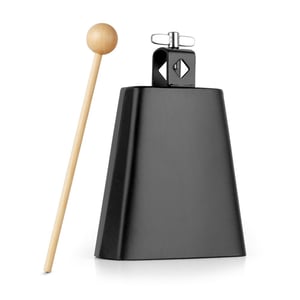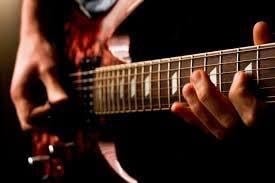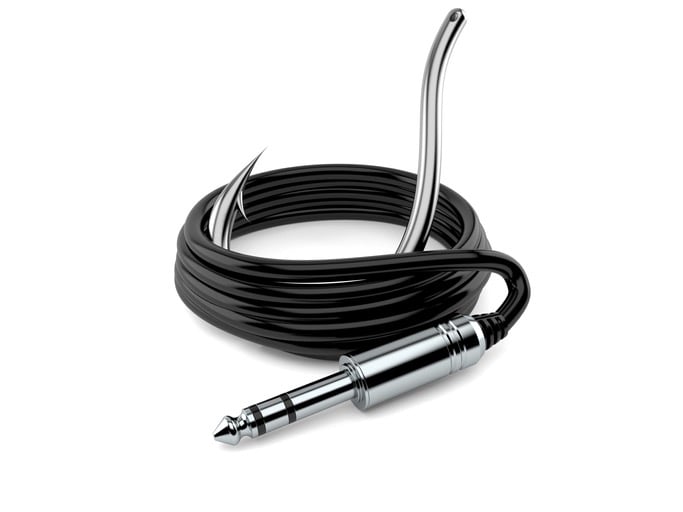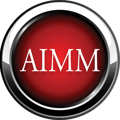Examples of a Hook in Songwriting
A hook is something vastly different depending on what industry you're in.
If you're a fisherman, the hook is your livelihood.
If you're an actor or actress on Broadway, the hook is the absolute last thing you want to get. If you're Peter Pan, Hook is your arch enemy.
And if you're in the music business, a hook is, well, what exactly is a hook? The truth is, the hook isn't one specific thing.
The hook is different from song to song, and sometimes it isn't clearly defined.
In the article below we will take a look at what a hook is in songwriting, and how to write them.
Continue to learn more.
Table Of Contents
Breaking Down a Music Hook
Many people confuse the hook with the chorus. But that's not always the case. Sometimes the hook is the chorus, but it doesn't have to be.
In music, a hook is simply the part of the song that catches the ear of the listener.
The part of the song that hooks you in.
It's a lyrical line or melodic phrase that makes the song memorable and stand out.
Think of Ariana Grande holding out her, "thank you, next" after the chorus and during the outro.
The most popular hooks will be stuck in your head for days on end.
If you've ever had a song stuck in your head for what feels like an eternity, the part that you keep playing on repeat in your head is more than likely the hook of the song.
It can be any of the following:
- The first few lines of the chorus
- A riff in the song
- Or a distinct sound, like whistling or a cowbell.
In music, the hook is similar to the hook in fishing.
A good hook will catch your audience's ear and reel them in.
How Do You Create a Hook?
The first thing you need to do to make a catchy hook for your song is to keep every part of the song in mind.
The actual hook of the song might be the title of the song, a lyrical line that is repeated that summarizes the song, a rhythmic passage, or an instrumental part called a riff.
A hook that might grab your listeners attention could be interesting vocals like the vocalizations used in scat music.
Or it could be unique instrumentation, like the cowbell used in Blue Oyster Cult's "Don't Fear The Reaper."

3 Great Hook Types
Rhythm Hook
The first type of hook is a rhythm hook.
The rhythm hook establishes the beat and rhythm combo that the song is built on. Stevie Wonder thrived with rhythm hooks, who started most of his hits with one.
Rhythm hooks worked well back in the '70s, and they still work well today.
To create a rhythm hook, start by keeping a beat. Tap your foot, clap your hands, or slap your knee.
The rhythmic hook needs to be short, so improvise a quick 4 or 8 beat rhythm that will grab attention.
The chord progression will also need to be short, so create a good 1 or 2 chord progression that sounds good when it's repeated.
Then, create a bass line where the end of the line connects smoothly back to the beginning.
The line needs to have a catchy rhythm but doesn't need to be the same rhythm as the other instruments.
Intro Hook
While the rhythm hook uses a combination of various instruments, an intro hook is usually a melodic idea that gets established in the intro.
After getting established in the intro, it gets repeated over and over, appearing, and then dropping out.
A few examples of good intro hooks are "Smoke On The Water" by Deep Purple, and Lady Gaga's "Bad Romance." Consider the repetition and melody of Lady Gaga's "oh oh oh's."
To make an intro hook, improvise a short melodic idea based on a strong, catchy rhythm. Focus mainly in the notes from the pentatonic scale.
Create three separate chord progressions that will successfully accompany the hook.
The three progressions should be able to serve as verse, chorus, and bridge progressions. Make sure the intro hook appears and disappears as your song progresses.
Intro hooks work well, but they tend to get tiresome if the listener hears it all the time.

Background Instrumental Hook
The first thing you think of when you think of Bob Dylan's "Like A Rolling Stone" is likely the organ that happens in each chorus.
Instrumental hooks tend to be very under-utilized, but also one of the most important devices in a songwriter's toolbox.
To create a background instrumental hooks, once your song is complete, make a short 2 to 4 beat lick on the guitar or keyboard that has a distinct rhythm.
It also needs to be able to be accompanied by most chords in your chosen key and used in the chorus, for the most part.
The background instrumental hook also works very well in combination with other hooks.
Think about Carly Rae Jepson's hit, "Call Me Maybe." In the chorus, you have the vocal melody, but the synth plays a sort of call-and-response to her lyrics. It is incredibly tight and memorable.
Try to fit it in and around chorus lyrics, rather than on top of them. You don't want to pull focus away from the singer.
Let the instrumental hook serve as an "answer" to a chorus lyric.
Reel Them In
A proper hook will catch the attention of your listeners, and it will keep their attention for hours and hours.
We've all heard a song for the first time, and something about it keeps us coming back for more.
We listen to it on repeat, almost enough times to make us start hating the song.
The part of the song that made you want to listen to it over and over again was the hook. When you have a chance, take a look at the top 40 charts.
It is almost a guarantee that every song at the top has a very catchy hook.
If you are an aspiring musician and want to learn more about songwriting, your instrument, and receive insider-knowledge, you need to consider attending an Accredited Music College.
The Atlanta Institute of Music and Media has industry-leading instructors and exclusive studios for your musical growth. You can even become Pro-Tools Certified at AIMM!
Click the link below if you would like to receive more information regarding AIMM and what it can offer you today!
If you liked this article, you should check these out:














